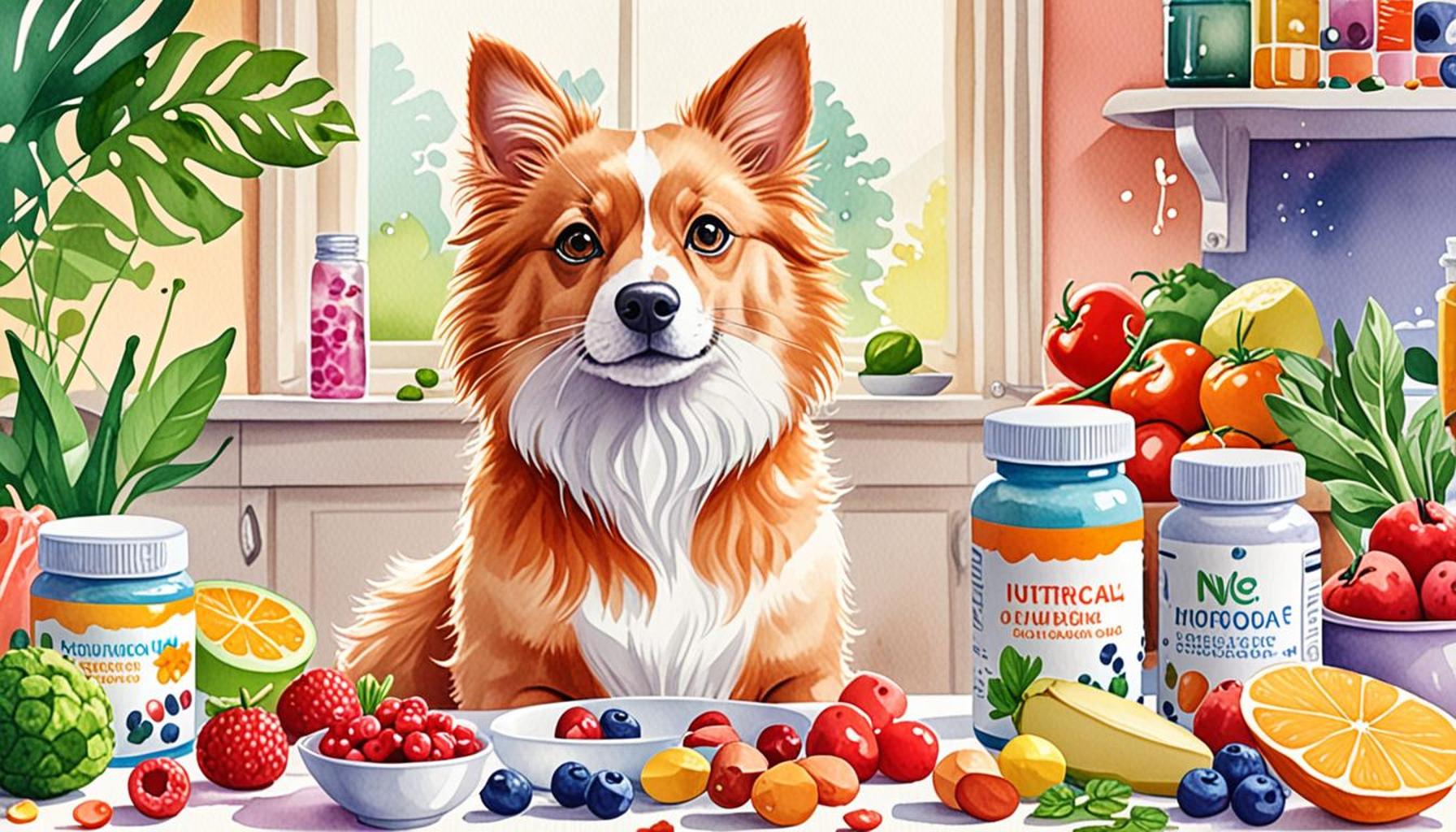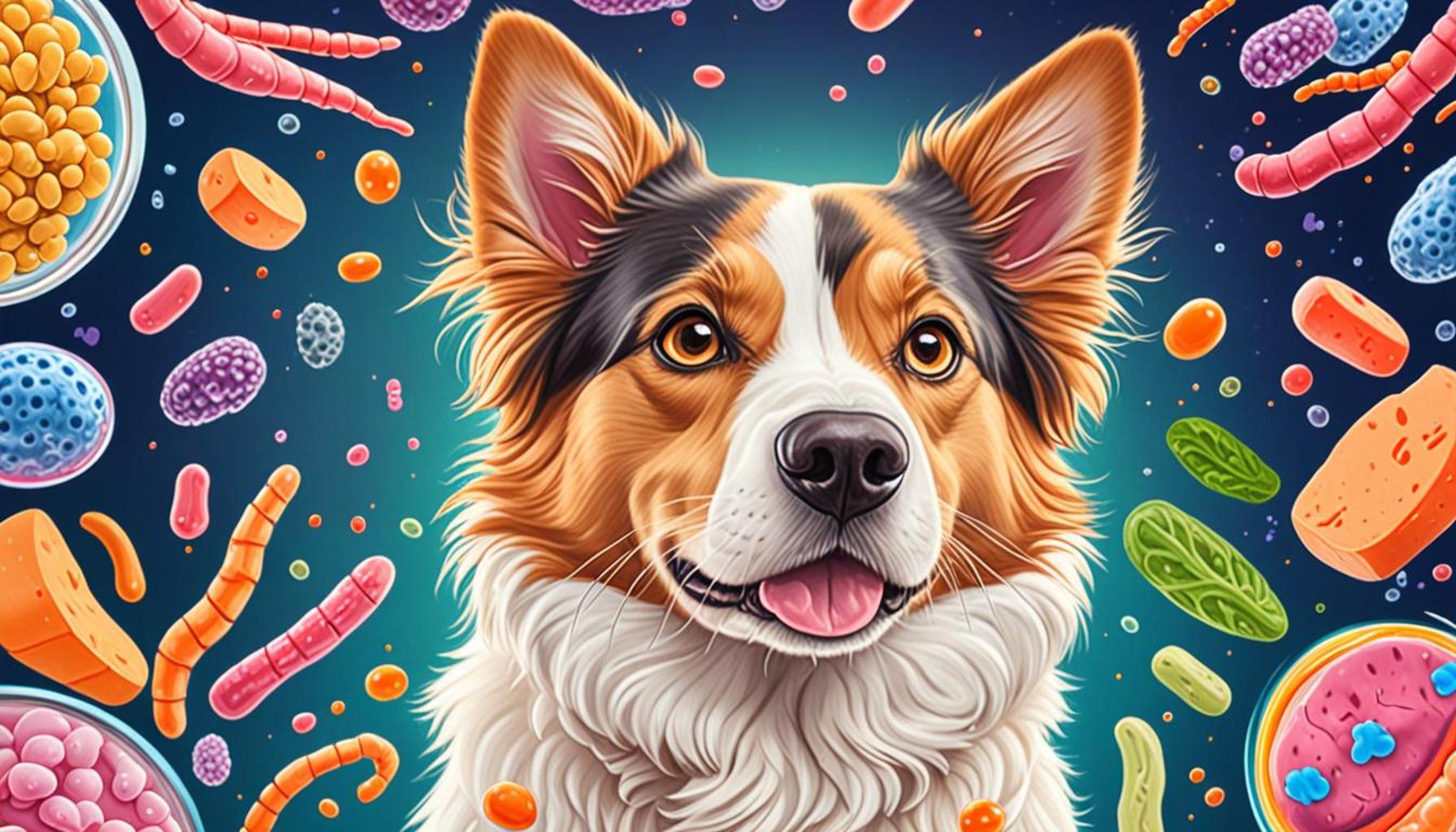The Importance of Balanced Nutrition for Pet Health

The Role of Nutrition in Pet Well-being
A well-balanced diet is the cornerstone of pet health. Just like humans, our pets require a variety of nutrients to thrive. Proper nutrition not only fuels their energy but also supports their immune system and overall vitality. Understanding this critical aspect can significantly impact a pet’s quality of life and longevity.
Key Nutritional Components for Pets
- Proteins: These are the building blocks of life, essential for muscle development and repair. Proteins are composed of amino acids, some of which are crucial for pets. For instance, taurine is a vital amino acid for cats, supporting their heart and vision health. Common protein sources include chicken, beef, fish, and egg, which should be appropriately cooked to reduce any harmful bacteria.
- Carbohydrates: These macronutrients provide essential energy and aid in digestion. While pets do not require carbohydrates in the same way humans do, moderate amounts can be beneficial. Ingredients like sweet potatoes, brown rice, and oats serve as excellent sources of digestible carbohydrates, offering both energy and fiber, which supports a healthy digestive system.
- Fats: Healthy fats are important for skin and coat health, and they also play a role in hormone production and nutrient absorption. Omega-3 and Omega-6 fatty acids, often found in fish oil and flaxseed, help maintain a shiny coat and can reduce inflammation, making them especially beneficial for pets with skin allergies.
- Vitamins and Minerals: These micronutrients support various bodily functions and ensure optimal health. For example, Vitamin A is essential for vision, while calcium and phosphorus are crucial for strong bones. A lack of these nutrients can lead to growth and developmental issues, especially in puppies and kittens.
Many pet owners may not realize that an unbalanced diet can lead to serious health issues. Common problems associated with poor nutrition include:
- Obesity: Overfeeding, particularly with high-calorie treats, can lead to obesity, which is linked to diabetes and joint problems.
- Diabetes: Just like humans, pets can develop diabetes, often linked to obesity and an unbalanced diet that consists of high-carb foods.
- Dental disease: Poor nutrition can contribute to dental issues, which can exacerbate other health concerns if not addressed.
- Allergies: A lack of certain nutrients or the presence of fillers in pet food can lead to allergies or intolerances, resulting in skin problems or gastrointestinal distress.
Understanding balanced nutrition makes all the difference in ensuring your pet leads a happy and healthy life. It is crucial to tailor their diets based on breed, age, and activity level. For example, a highly active breed like a Golden Retriever will have different caloric and nutritional needs compared to a more sedentary breed like an English Bulldog. Additionally, consulting with a veterinarian can help you determine the best dietary choices for your pet’s specific health requirements and lifestyle.
With the right information, pet owners can make informed choices that support their furry friends’ long-term health. Investing time in understanding your pet’s nutritional needs fosters a deeper bond and promotes a fulfilling life for both pet and owner.
DISCOVER MORE: Click here to learn about the transformative power of adopting rescued animals</p

Understanding the Implications of Poor Nutrition
When it comes to the health of our pets, the concept of balanced nutrition cannot be overstated. The choices we make daily in our pets’ diets have far-reaching consequences, playing a pivotal role in their long-term health and behavior. Failing to provide the necessary balance of nutrients can lead to a host of serious health issues that may not only shorten their lifespan but also diminish their quality of life.
One of the most troubling issues stemming from an inadequate diet is obesity. According to the Association for Pet Obesity Prevention, nearly 60% of cats and 56% of dogs in the United States are classified as overweight or obese. This alarming trend can be linked directly to overfeeding and a lack of understanding regarding appropriate serving sizes. An obese pet is at a higher risk for developing various conditions, including diabetes, joint problems, and cardiovascular disease, which could severely impact their ability to engage in everyday activities.
Moreover, an unbalanced diet might not just result in excess weight but can also lead to the onset of diabetes. As pets are exposed to high-carbohydrate diets, their bodies may struggle to manage blood sugar levels effectively. Just like in humans, diabetes poses significant challenges, requiring ongoing medical attention and frequent monitoring. A study published in the Journal of Veterinary Internal Medicine indicated that over 80% of diabetic pets were either overweight or obese, proving that a proper diet must prioritize correct nutritional content.
Another critical element of pet health that often goes unnoticed is oral health. Poor nutrition can lead to dental disease, affecting not only a pet’s mouth but also their overall health. Tartar and plaque build-up can lead to periodontal disease, causing pain and affecting the way pets eat. It can even result in systemic infections that affect vital organs such as the heart and kidneys. Regular oral care, alongside a balanced diet, is essential to prevent these debilitating conditions.
Food allergies are also a growing concern among pet owners. The inclusion of cheap fillers and artificial ingredients in many commercial pet foods can lead to adverse reactions, manifesting in the forms of skin irritations, gastrointestinal issues, and chronic discomfort. Identifying and eliminating the sources of these allergens from a pet’s diet can be a complicated yet necessary task. Pet owners are encouraged to read ingredient labels closely, opting for high-quality foods that feature real, whole ingredients.
To avoid such pitfalls, it is vital for pet owners to understand the specific dietary requirements that will best suit their pets’ needs. Factors such as age, breed, and activity level play significant roles in determining the appropriate nutrients. For example, a growing puppy requires different nutrients than a senior dog prone to arthritis. Additionally, consulting with a veterinarian can be instrumental in crafting an individualized diet plan that aligns with the pet’s unique health circumstances and lifestyle.
Ultimately, recognizing the importance of balanced nutrition is fundamental for safeguarding our pets’ health and ensuring they lead vibrant, fulfilling lives. Armed with knowledge and the right resources, pet owners can make informed choices that will profoundly influence their companions’ health journeys.
| Advantage | Description |
|---|---|
| Improved Immune Function | Abalanced diet enhances your pet’s immune system, protecting them from diseases and infections. |
| Healthy Weight Maintenance | Proper nutrition ensures that pets achieve and maintain ahealthy weight, reducing the risk of obesity-related conditions. |
| Enhanced Energy Levels | Balanced nutrition contributes to sustained energy, making pets more active and better able to engage in play. |
| Improved Coat and Skin Health | Essential fatty acids and vitamins from a proper diet result in a shiny coat and healthy skin. |
The Importance of Balanced Nutrition for Pet Health
Balanced nutrition is crucial for the optimal health of your pets. It plays a significant role not only in their physical well-being but also in their emotional state. When pets consume a well-rounded diet, they receive the necessary vitamins, minerals, and nutrients that foster longevity and vitality. A tailored nutritional plan can prevent various health issues and even extend your pet’s lifespan. Interesting research indicates that pets with balanced diets are less likely to experience chronic diseases, shedding light on the necessity for pet owners to understand the impact of nutrient-rich foods. Moreover, different pets have varied nutritional requirements. For example, puppies and kittens require more protein to support their growth, while senior pets may need a diet lower in calories and enriched with joint supplements. Consulting with a veterinarian can help in making informed dietary decisions that match your pet’s unique needs. In addition, further investigation into the effects of high-quality versus low-quality pet foods reveals striking differences in health outcomes. Ensure your pet’s nutrition is a top priority, and you will see the benefits reflected in their overall demeanor and activity levels.
DON’T MISS: Click here to discover natural options for your pets
The Role of Nutritional Education and Awareness
As pet owners, it is our responsibility to educate ourselves about the impact of balanced nutrition on our pets’ well-being. The pet food industry is vast and often overwhelming, with countless products marketed for different needs and preferences. However, not all pet foods are created equal, and a lack of understanding can lead to poor nutritional choices that may compromise our pets’ health. Awareness is key; knowing what to look for and what to avoid can empower pet owners to make informed decisions.
A critical aspect of nutritional education is understanding the balance between macronutrients—proteins, fats, and carbohydrates. For example, proteins serve as the building blocks for tissues and are essential for growth and repair. Fats provide energy and help maintain a healthy coat and skin. Carbohydrates, while often maligned, can be beneficial as a source of energy when derived from quality ingredients. According to the Association of American Feed Control Officials (AAFCO), a well-balanced pet diet should consist of properly proportioned macronutrients that align with the animal’s physiological needs.
Another vital component is micronutrients, including vitamins and minerals, which play crucial roles in various bodily functions. For instance, calcium and phosphorus are needed for strong bones, while vitamins A, D, and E are essential for metabolic processes and maintaining immune function. A deficiency in any of these can lead to disorders that may grow more worrisome over time. Pet owners should seek out foods enriched with these essential nutrients, as well as consider supplements when necessary, ideally under the guidance of a veterinarian.
Moreover, pet nutrition is an ever-evolving field. Recent research has demonstrated the benefits of certain dietary trends, such as raw feeding and the inclusion of whole foods, which aim to mimic a pet’s natural diet more closely. For instance, dogs are predominantly carnivorous, so many advocates of raw diets argue for increased meat content. However, the debate continues regarding the safety and health implications of such diets. It’s essential for pet owners to remain informed on recent findings and consult with professionals to tailor choices that suit their pets’ unique health profiles.
Portion control is another aspect of balanced nutrition that often falls by the wayside. Pet owners must be wary of oversized portions and remember that serving sizes should be adjusted based on factors such as a pet’s size, age, and activity level. Pet food brands typically provide serving recommendations, but these should be viewed as a starting point rather than strict guidelines. Regular weigh-ins and body condition evaluations can help ensure that pets maintain a healthy weight optimized for their well-being.
Finally, a proactive approach to knowledge sharing can enhance community awareness surrounding pet nutrition. Online platforms, local veterinary clinics, and pet stores often host workshops or informational seminars that address common queries about pet diet and wellness. Engaging in discussions through forums or social media groups can also provide valuable insights and experiences from other pet owners.
By prioritizing education and actively seeking out accurate information, pet owners can promote optimal health and longevity for their four-legged companions. Keeping abreast of nutritional trends and scientific discoveries equips us to make better choices, fostering a healthier future for our pets.
DISCOVER MORE: Click here to learn about the benefits of animal-assisted therapy
Conclusion: Nourishing Our Pets for a Healthier Tomorrow
In summary, the significance of balanced nutrition for pet health cannot be overstated. As caregivers, our understanding of what constitutes a well-rounded diet is crucial for the longevity and quality of life of our beloved animals. A diet that encompasses the right proportions of macronutrients and micronutrients not only supports their physical health but also enhances their overall vitality and well-being. Knowledge empowers us to sift through the myriad of options available in the pet food market, helping us differentiate between choices that promote health and those that may detrimentally impact our pets.
Moreover, fostering a culture of nutritional awareness is essential. Engaging with veterinary professionals and utilizing various community resources can keep us informed about the latest research and dietary trends. Understanding each pet’s specific needs, and being cautious with portion sizes, will help maintain a healthy weight, minimizing the risk of associated health complications like obesity.
As we navigate the complexities of pet nutrition, it is vital to adapt our approaches based on evolving scientific insights and the unique health profiles of our pets. Regular check-ups with veterinarians and open discussions within the pet owner community are imperative. By committing to balanced nutrition, we not only enrich our pets’ lives but also enhance our experiences with them.
In conclusion, a proactive approach to nourishing our pets sets the foundation for a healthier, happier future. Let us embrace our roles as informed pet owners, ensuring that we provide the best possible nutrition tailored to our furry friends, ultimately leading to thriving, content companions.



